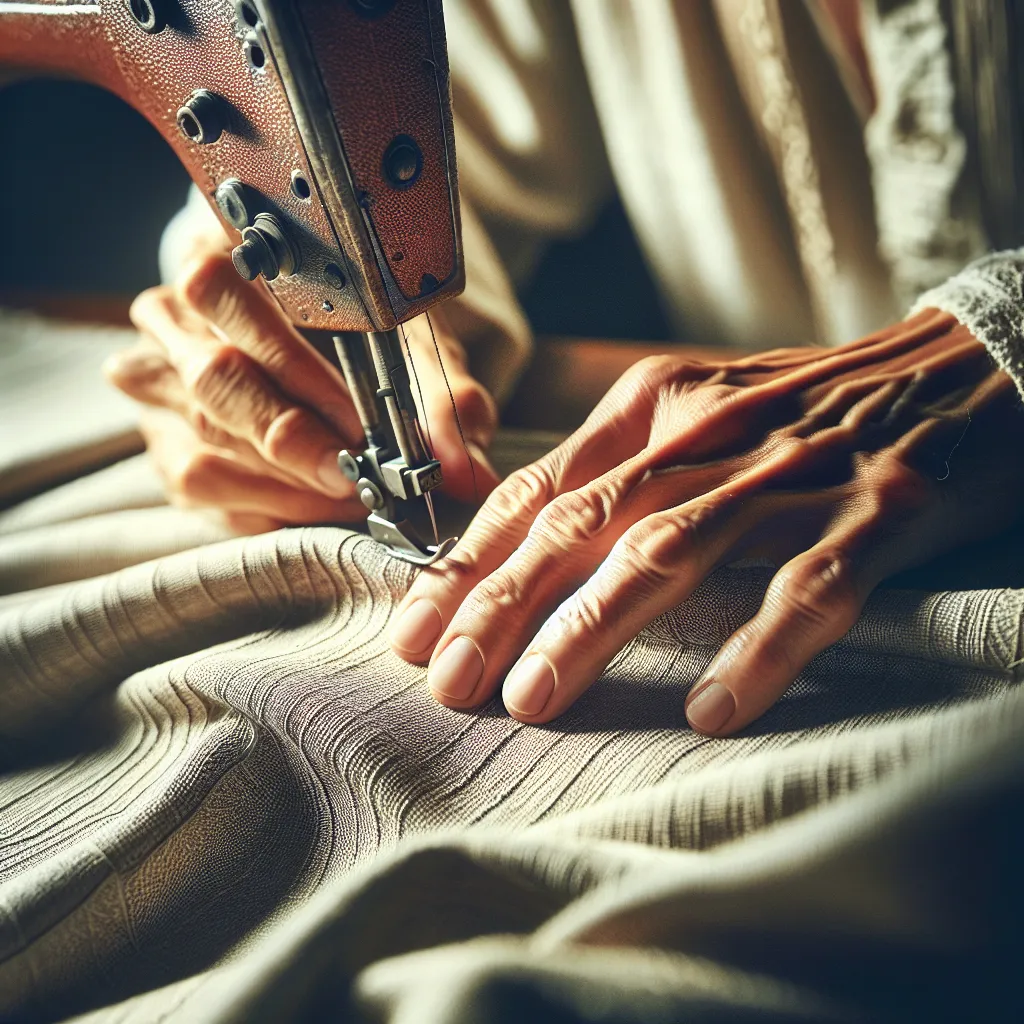Passion Turned Profit: The Journey of Handmade Clothing Entrepreneurs
Many successful handmade clothing entrepreneurs started their journey as passionate hobbyists. What began as a creative outlet and a love for crafting unique pieces has transformed into thriving businesses. These entrepreneurs have turned their passion for making handmade clothing into profitable ventures, showcasing the power of turning a hobby into a successful business.
One of the key factors behind the success of these entrepreneurs is their unwavering passion for their craft. They pour their heart and soul into every piece they create, ensuring that each item reflects their individual style and dedication to quality. This passion shines through in the finished products, attracting a loyal customer base that appreciates the attention to detail and the unique touch that comes with handmade clothing.
Another crucial element in the success of these businesses is the ability to recognize and adapt to market trends while staying true to their craft. Handmade clothing entrepreneurs understand the importance of balancing creativity with market demand. By staying abreast of fashion trends and consumer preferences, they are able to create pieces that resonate with their target audience while maintaining the essence of handmade craftsmanship.
Furthermore, these entrepreneurs have leveraged the power of online platforms and social media to showcase their work to a global audience. Through visually engaging websites, e-commerce platforms, and social media channels, they have been able to expand their reach beyond local markets, connecting with customers who appreciate the authenticity and uniqueness of handmade clothing.
In conclusion, the journey of handmade clothing entrepreneurs from passionate hobbyists to successful business owners is a testament to the transformative power of turning passion into profit. Their unwavering dedication to their craft, agility in adapting to market trends, and effective use of online platforms have been instrumental in their success, inspiring aspiring entrepreneurs to turn their own hobbies into thriving businesses.
From Sewing Circles to Storefronts: How Handmade Clothing Businesses Thrive
From Sewing Circles to Storefronts: How Handmade Clothing Businesses Thrive
The journey from sewing circles to storefronts is a remarkable transition that many handmade clothing entrepreneurs have achieved in recent years. These individuals have turned their passion for creating unique, handcrafted garments into successful businesses. By leveraging the power of e-commerce platforms and social media, they have been able to reach a global audience, expanding their customer base beyond local communities.
One of the key factors contributing to the success of these businesses is their emphasis on storytelling. Each garment is imbued with a narrative, often rooted in cultural traditions, sustainability, or the personal journey of the designer. This personalized approach resonates with consumers who are increasingly seeking out products with meaning and authenticity.
Furthermore, the rise of the slow fashion movement has played a significant role in the success of handmade clothing entrepreneurs. As consumers become more conscious of the environmental and social impact of fast fashion, they are turning to handmade garments as a sustainable and ethical alternative. This growing demand for unique, well-crafted pieces has created opportunities for entrepreneurs to thrive in the market.
Additionally, the sense of community fostered by sewing circles and crafting groups has translated into a strong support network for these entrepreneurs. Through collaboration, mentorship, and shared resources, they have been able to navigate the complexities of running a business, further fueling their success.
In conclusion, the journey from hobby to business for handmade clothing entrepreneurs is a testament to their creativity, perseverance, and innovative approach to building a brand. By embracing digital platforms, telling compelling stories, and aligning with the values of the slow fashion movement, these entrepreneurs have carved out a niche in the market and demonstrated that handmade clothing businesses can thrive in today’s economy.
Crafting Success: The Rise of Handmade Clothing Entrepreneurs
Sure! Here’s a paragraph for you:
Handmade clothing entrepreneurs have carved out a significant niche in the fashion industry, propelled by a growing consumer interest in unique, artisanal pieces. What started as a hobby for many individuals has blossomed into successful businesses, thanks to the rise of online platforms and social media, which provide a global marketplace for their products. The allure of handmade clothing lies in its exclusivity, quality craftsmanship, and the personal touch infused into each piece. These entrepreneurs have harnessed the power of storytelling and authenticity, sharing the passion and dedication behind their creations, thus resonating with consumers seeking ethically-produced and one-of-a-kind garments. As the demand for sustainable and individualistic clothing continues to surge, these handmade clothing entrepreneurs are well-positioned to thrive in the evolving fashion landscape.
Artisanal Apparel: The Business Boom behind Handmade Clothing
Artisanal apparel, a niche market focused on handcrafted clothing, has been experiencing a remarkable boom in recent years. With the growing trend of consumers seeking unique, high-quality, and ethically-made garments, artisans who create handmade clothing have found a lucrative market for their skills and talents. What was once a hobby for many individuals has now evolved into successful businesses, with entrepreneurs thriving in the artisanal apparel industry.
The appeal of artisanal apparel lies in its emphasis on craftsmanship, attention to detail, and the personal touch that mass-produced clothing often lacks. Customers are increasingly drawn to the authenticity and story behind handmade clothing, as well as the sustainable and eco-friendly aspects of supporting small-scale artisans. The rise of social media and e-commerce platforms has also played a significant role in the success of handmade clothing entrepreneurs, enabling them to showcase their creations to a global audience and connect directly with potential customers.
Entrepreneurs in the handmade clothing sector have harnessed the power of storytelling to engage consumers and differentiate their brands in a competitive market. By sharing the journey of creating each garment, highlighting the materials used, and illuminating the artisan’s unique process, these entrepreneurs have successfully built a community around their brands. This personalized approach has cultivated a loyal customer base that values the individuality and exclusivity of artisanal apparel.
Furthermore, the emphasis on sustainability and ethical production practices has resonated with an increasingly conscientious consumer base. Handmade clothing entrepreneurs often prioritize the use of natural, eco-friendly materials and uphold fair labor practices, appealing to consumers who are mindful of the social and environmental impact of their purchases. As a result, these businesses are not only financially successful but also contribute to the promotion of ethical consumerism.
In conclusion, the remarkable success of handmade clothing entrepreneurs in the artisanal apparel industry is a testament to the enduring appeal of craftsmanship, authenticity, and sustainability. As the demand for unique and ethically-made clothing continues to grow, these entrepreneurs are well-positioned to thrive in an evolving market that values individuality and conscious consumption.



